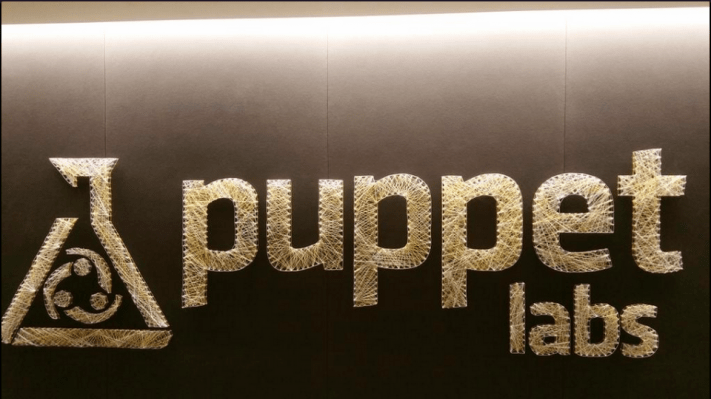Puppet Labs has long allowed IT admins to manage and scale their infrastructure. Today, ahead of its user conference in Portland next week, the company is announcing a new product that will also make it easier for organizations to deploy and manage applications on top of their infrastructure. Puppet Labs Orchestration now allows Puppet users to model their applications and application stacks as Puppet code so they can then easily roll them out to new infrastructures.
The company notes that this new service build on the concepts the company has developed over the last ten years. “Puppet Application Orchestration is a direct extension of our existing strengths and technologies, adding new tools and capabilities that give our customers a full management stack, from bare metal all the way up to modern distributed applications ,” said Luke Kanies, founder and CEO of Puppet Labs. “It marks a huge step forward for the industry, and it’s just the beginning of another decade of innovation from Puppet Labs. Because Application Orchestration is built on the core concepts underlying our past 10 years of success, and can use any of the 3,500 public Forge modules, any team using Puppet has an unfair advantage over competitors who can’t deploy as quickly.”
As Puppet Labs argues, most applications now rely on a wide variety of other components and services to run. This additional complexity is making it increasingly harder to IT teams to manage and deploy these applications. As IDC Research VO for Enterprise System Management Software Mary Johnston Turner notes, “IT administration teams spend 40% of their time simply managing new service requests, provisioning systems and applying patches.” Puppet Labs Orchestration aims to cut down this time significantly.
The new service uses the same model-based approach Puppet users are already familiar with and the service is mostly agnostic to the technologies admins want to use. This means, users can install their applications on bare metal or containers, on premises, in the cloud or as a hybrid deployment.
The new service will be generally available later this year and will be included in Puppet’s enterprise license. Additional open source tooling will be available in later updates.
